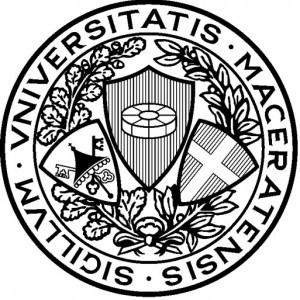Photos of university / #oxford_uni
The BA in Classical Languages and Literature at the University of Oxford offers students a comprehensive and rigorous education in the languages, literature, history, and culture of ancient Greece and Rome. This programme provides an in-depth study of classical languages such as Latin and Ancient Greek, enabling students to develop advanced reading, translation, and linguistic skills. Beyond language acquisition, students explore the rich literary and philosophical texts that have shaped Western intellectual history, including epic poetry, drama, philosophy, historiography, and rhetorical works. The course emphasizes critical analysis, contextual understanding, and close textual interpretation, fostering a deep appreciation of the classical world and its enduring influence.
Throughout the programme, students engage with original texts in their original languages, supported by courses in classical civilization, ancient history, and archaeology. They are encouraged to develop their own independent research skills through essays, dissertations, and presentations, enhancing their analytical and communicative abilities. The interdisciplinary nature of the programme allows students to explore themes such as politics, religion, mythology, and art in the context of classical antiquity, providing a well-rounded academic experience.
Situated within the University of Oxford’s renowned Faculty of Classics, students benefit from expert teaching delivered by leading scholars in the field. The programme’s structure combines lectures, seminars, and tutorials, offering personalized guidance and fostering lively intellectual debate. Graduates of this programme are well-equipped for careers in academia, publishing, archaeology, education, law, and public service, among others. The BA in Classical Languages and Literature at Oxford aspires to cultivate not only linguistic competence and literary understanding but also critical thinking, cultural awareness, and a lifelong appreciation of the classical heritage that continues to influence contemporary society.
The DPhil takes the form of the composition of a substantial dissertation, of up to 100,000 words, based on new research on a subject of your choice. You will be appointed a supervisor or supervisors with relevant expertise, who will support you throughout your doctoral work, beginning with the formulation of the topic and ending with the final examination.
The best dissertations are published, many in the Oxford University Press series of Classical Monographs which exists for this purpose.
The vision of the DPhil as a necessary stage of an academic career, following on from master's-level education and preparing for postdoctoral work and beyond, is reflected in five other ways:
-
Doctoral students are required to set the topics of their individual specialisation in a larger understanding of developments in the field across the world.
-
They are encouraged to pursue a diversity of scholarly interests on the side of working on their doctoral dissertation, so as to start building a larger portfolio of specialities. They may produce articles or review books in areas somewhat different from that of their dissertation, and towards the end of their doctoral may begin to contemplate a postdoctoral project.
-
The Classics Faculty assists doctoral students in continuing to develop necessary research skills, and acquiring or improving knowledge of relevant ancient and modern languages. Competence in Latin and/or Greek is an admission requirement.
-
Doctoral students can be trained and given experience (with mentoring) in undergraduate teaching of several different kinds, eg class, lecture, tutorial.
-
There are other structures, within the Classics Faculty, the Humanities Division and the wider University, to help with career-development and with academic placement.
Finally, it is fully recognised that some students will choose not to pursue a professional career in Classics, and the structures mentioned in the points above are tailored to their needs too. The experience of the Classics DPhil programmes is intended to be personally fulfilling and intellectually enriching in itself, and the cognitive skills required are highly transferable to other walks of life.
Examples of recent DPhil thesis titles include:
| Thesis title | Supervisor name(s) |
| Cardinal Bessarion And The Transmission And Interpretation Of Plato In The Fifteenth Century | Dr S Gertz, Dr N Wilson and Dr S Heyworth |
| The Hesiodic Aspis: Introduction and Commentary on vv. 139-237 | Dr R Rutherford |
| Seneca's De ira: a study | Professor T Reinhardt |
| Latin Poetry And The Idea Of Rome In The Greek Novel | Dr S Heyworth |
| Standardisation and Variation in Latin Orthography and Morphology (100 BC-AD 100) | Dr J Adams |
| Cato The Censor And the Creation Of A Paternal Paradigm | Professor M Leigh |
| A Commentary On Pindar's Emmenid Odes: O.2, O.3, P.6, I.2 | Dr M Davies |
| Manilius on the Nature of the Universe: A Study of the Natural-Philosophical Teaching of the Astronomica with Select Commentary | Professor T Reinhardt |
| Questioning The Patient, Questioning Hippocrates: Rufus Of Ephesus And The Limits of Medical Authority | Professor C Pelling and Professor H King |
| Telamonian Ajax: A Study of His Reception in Archaic and Classical Greece | Dr F Budelmann |
| Repetition and Internal Allusion in Lucretius' De Rerum Natura | Professor T Reinhardt and Professor S Harrison |
Part-time study
The faculty welcomes applications for part-time study on the DPhil. Part-time students are fully integrated into the research culture of the Classics Faculty and afforded all the same opportunities and support as full-time students.
The faculty appreciates that part-time research students will have non-standard attendance and work patterns. Although there is no requirement to reside in Oxford, part-time research students must be able to commit to attendance in Oxford at least once a week during Weeks 0 to 9 of each term, in order to meet with their supervisor, participate in research seminars and undertake skills training.
It is not possible to study for the DPhil in Classical Languages and Literature by distance learning.
Applicants are normally expected to be predicted or have achieved a first-class or strong upper second-class undergraduate degree with honours (or equivalent international qualifications), as a minimum, in Classics or a similar course of academic study with substantial course components in the area of Classics.
For applicants with a degree from the USA, the minimum GPA sought is 3.7 out of 4.0.
You are normally expected to have a master's degree in a relevant subject with scores at the same level as first-class or high upper second-class honours. If you apply whilst studying for a master's degree, these scores may be required as a condition of any offer made.
If you hold non-UK qualifications and wish to check how your qualifications match these requirements, you can contact the National Recognition Information Centre for the United Kingdom (UK NARIC).
Degree-level competence in at least one ancient language is a requirement for admission.
No Graduate Record Examination (GRE) or GMAT scores are sought.
- Official transcript(s)
- CV/résumé
- Research proposal:Up to 1,200 words, typically two to three pages
- Written work:Two essays of 2,000 words each
- References/letters of recommendation: Three overall, all of which must be academic
ENGLISH LANGUAGE REQUIREMENTS
Higher level
|
est |
Standard level scores |
Higher level scores |
||
|
IELTS Academic |
7.0 | Minimum 6.5 per component | 7.5 | Minimum 7.0 per component |
|
TOEFL iBT |
100 |
Minimum component scores:
|
110 |
Minimum component scores:
|
| Cambridge Certificate of Proficiency in English (CPE) | 185 |
Minimum 176 per component |
191 |
Minimum 185 per component |
| Cambridge Certificate of Advanced English (CAE) | 185 |
Minimum 176 per component |
191 |
Minimum 185 per component |
- Global Education
- Hill Foundation Scholarships
- Ertegun Scholarship Programme
The Classics (or Classical Languages and Literature) program at the University of Oxford offers students an in-depth study of ancient Greek and Latin languages, as well as the rich cultural, historical, and literary traditions of ancient Greece and Rome. The program is designed to develop a comprehensive understanding of the classical civilization, with a focus on language proficiency, critical analysis, and contextual knowledge. Students are introduced to both classical languages and the literature produced in those languages, enabling them to read original texts and interpret their meanings within their historical settings.
The course structure typically includes modules on classical languages, classical literature, ancient history, philosophy, and archaeology. Students begin with foundational language courses, gradually progressing to more advanced language skills, translation, and philological analysis. As they advance, students explore a range of classical texts, including epic poetry, drama, philosophy, rhetoric, and historical writing. The program emphasizes original source analysis, fostering skills in textual criticism, historical contextualization, and literary interpretation.
Throughout their studies, students also gain insights into the archaeology and material culture of the ancient Mediterranean, gaining an understanding of ancient societies' social, political, and religious aspects. Many modules include a comparative component, exploring connections between ancient cultures and their influence on later civilizations.
The program prepares students for diverse career paths, including academia, archaeology, education, publishing, cultural heritage management, and international relations. The University of Oxford provides access to excellent resources, including specialized libraries and collections of ancient manuscripts, along with expert faculty members renowned in their fields. Students are encouraged to participate in various extracurricular activities, including classical societies, conferences, and study trips to archaeological sites.
Assessment methods typically include written assignments, translation exercises, essays, and examinations. The program's rigorous academic standards aim to produce graduates with high-level language skills, critical thinking abilities, and a deep appreciation for classical civilization. Graduates of the Classics program are well-equipped to pursue advanced research degrees or enter a wide range of professional fields requiring analytical and linguistic skills.
In summary, the Classics program at Oxford offers an intellectually challenging and rewarding exploration of ancient Greek and Latin languages and their cultural contexts. It fosters linguistic competence, historical understanding, and literary appreciation, providing students with a solid foundation for further academic pursuits or professional careers related to classical studies.









